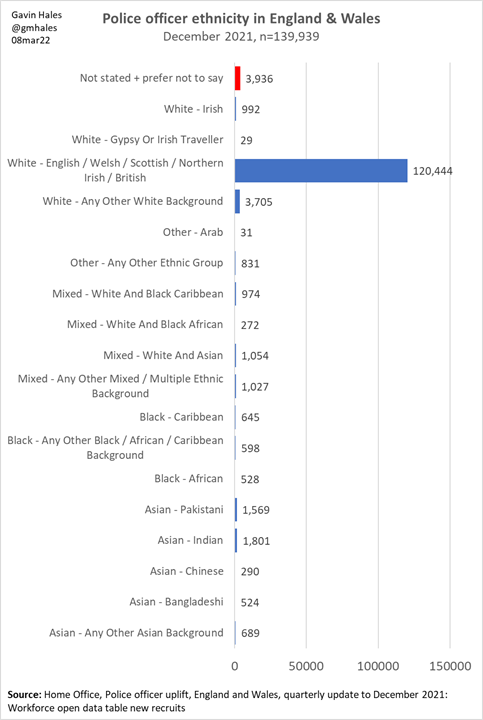The Home Office published their quarterly update of crime outcomes data today, and I've been taking my periodic look at rape charge rates.
Here, first, we see that the charge rate for rapes recorded in 2020/21 has now reached 4.0% and continues to rise. #crimestats
1/ 🧵
Here, first, we see that the charge rate for rapes recorded in 2020/21 has now reached 4.0% and continues to rise. #crimestats
1/ 🧵

I can provide this kind of analysis because I've been collating an archive of the quarterly updates over the last 2 yrs, something I'm not aware anyone else has done.
Here's a summary of the data.
2/
Here's a summary of the data.
2/

We can look at charge rate progression in chart form, comparing where successive years have got to. The dashed lines and hollow markers indicate no refresh of the data published at that point.
3/
3/

Here's a slightly closer look at the last 4 years. The pink dotted line shows an example of directly comparable data points, at the same relative point in time.
4/
4/

If we arrange the data differently, we can overlay & start to compare different years. The trajectory is pretty consistent across the 4 years of police recorded rapes/outcomes.
The uptick in the most recent 2019/20 data point seems notable, as does the concave 21/22 trend.
5/
The uptick in the most recent 2019/20 data point seems notable, as does the concave 21/22 trend.
5/

In January I put together an animation that explains things in a bit more detail. I suggested charge rates were heading for around 4.5%, but now it seems it might be more like 5%. Certainly not the 1.x% of newspaper headlines.
6/
https://twitter.com/gmhales/status/1618974195932884992?s=20
6/
One final thing here for now, which I thought was striking.
I charted the number of charges recorded by quarter, irrespective of when the rapes to which they relate were recorded.
We see 2 things: the R v Allan cliff-edge, and more recently a gradual recovery.
7/
I charted the number of charges recorded by quarter, irrespective of when the rapes to which they relate were recorded.
We see 2 things: the R v Allan cliff-edge, and more recently a gradual recovery.
7/

If you aren't familiar with the R v Allan case, it was a rape trial that collapsed in Dec 2017 when exculpatory digital evidence was disclosed at the trial. It led to a crisis around disclosure and concerns re the possibility of miscarriages of justice, esp in rape cases.
8/
8/
That charge volumes have now just about recovered to their pre-R v Allan numbers is encouraging.
Overall, I'd like to think we can see some green shoots of things improving, even if there is still a long way to go.
9/
Overall, I'd like to think we can see some green shoots of things improving, even if there is still a long way to go.
9/
I always post a link to my sources when they are in the public domain. The Home Office Crime Outcomes Open Data are published at gov.uk/government/sta…
10/
10/
Incidentally, the impact of R v Allan was examined by Home Office researchers in the statistical analysis that accompanied the Government Rape Review assets.publishing.service.gov.uk/government/upl… via gov.uk/government/pub…
11/
11/

• • •
Missing some Tweet in this thread? You can try to
force a refresh

 Read on Twitter
Read on Twitter










